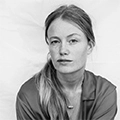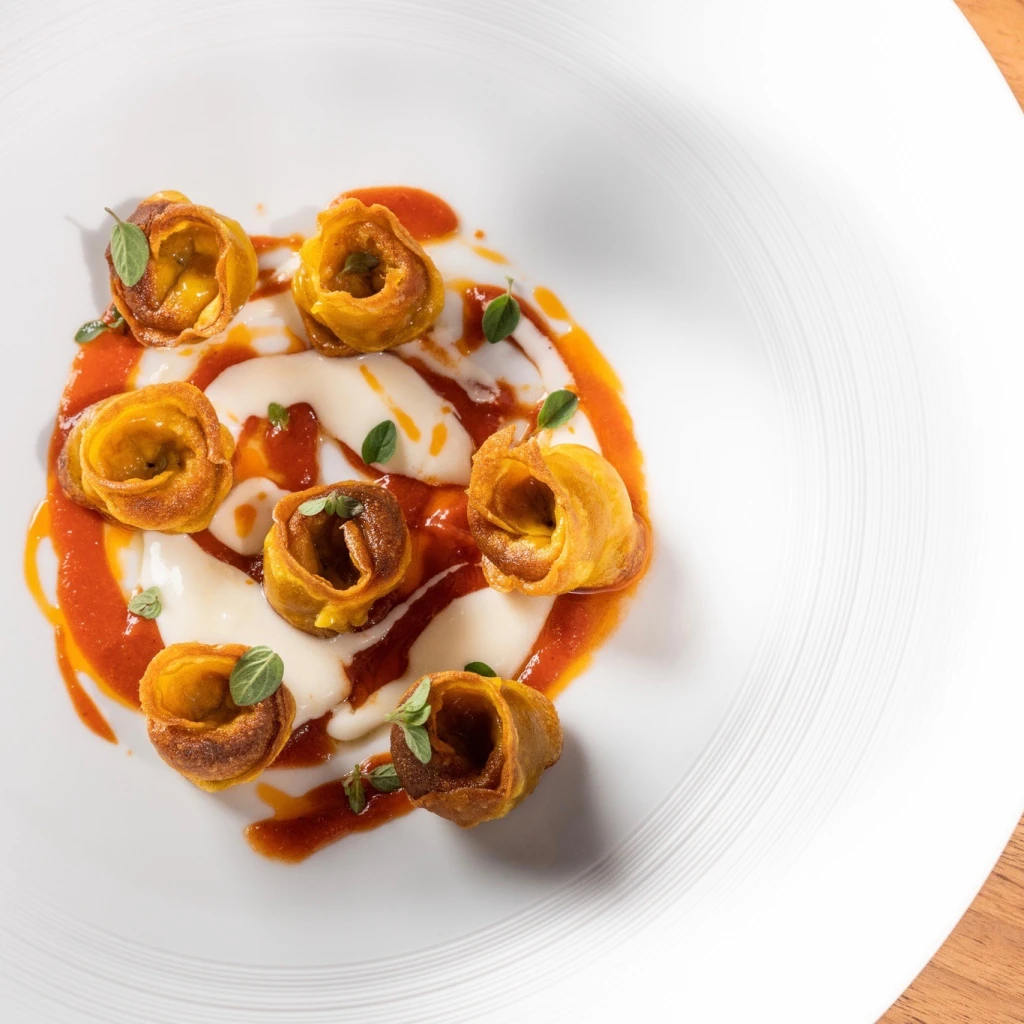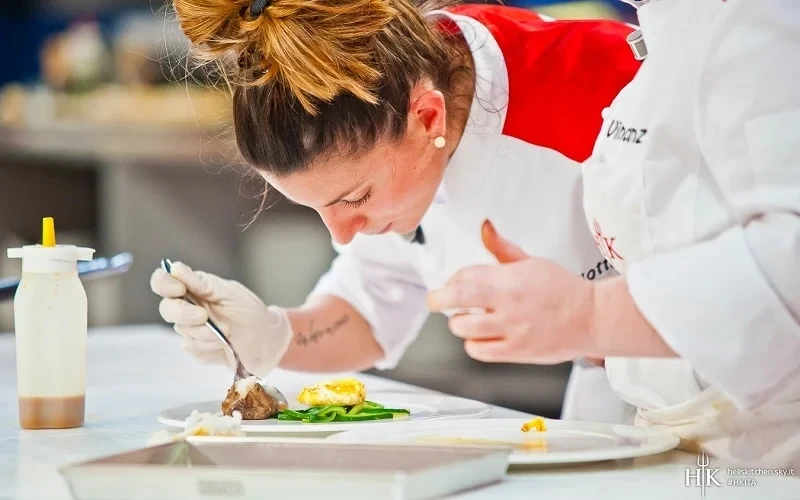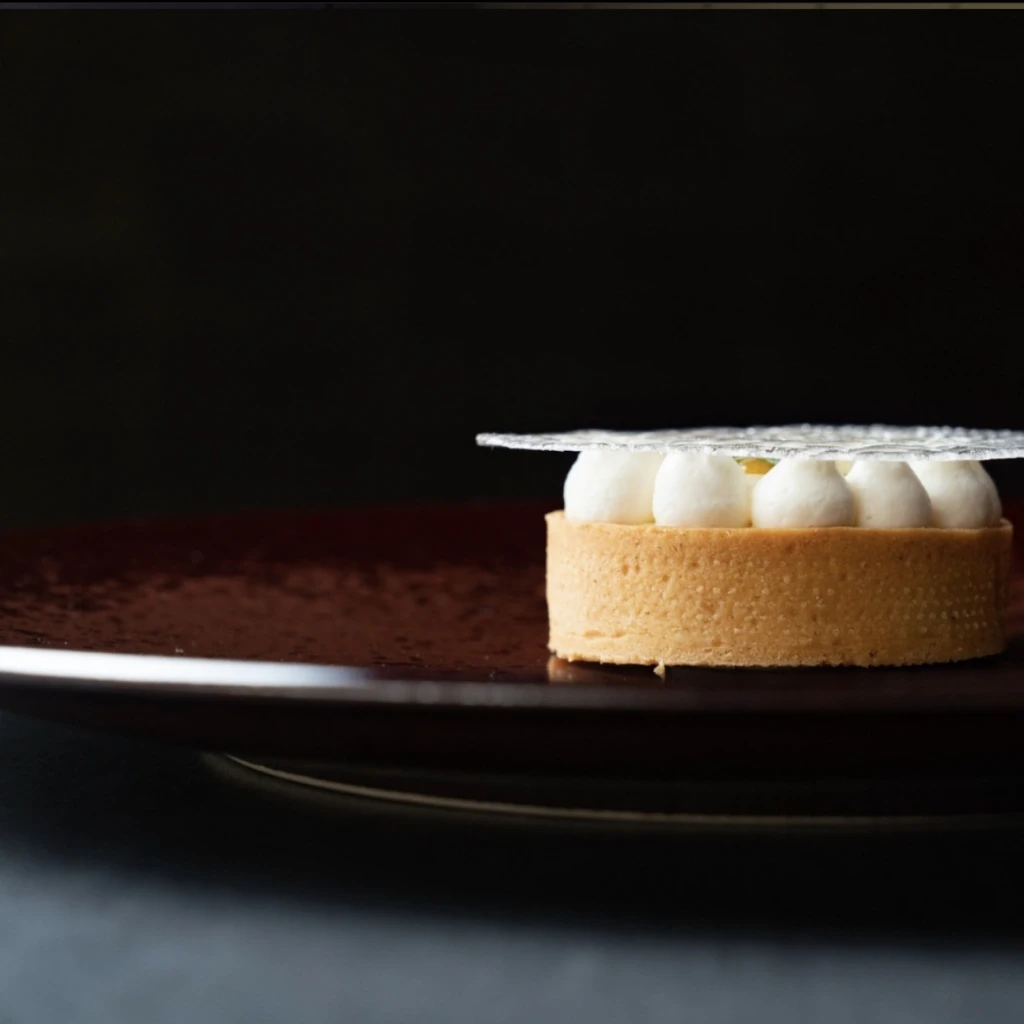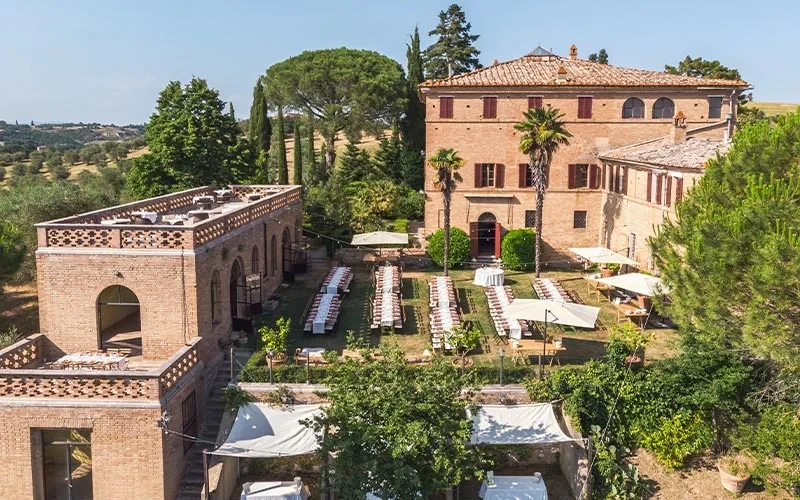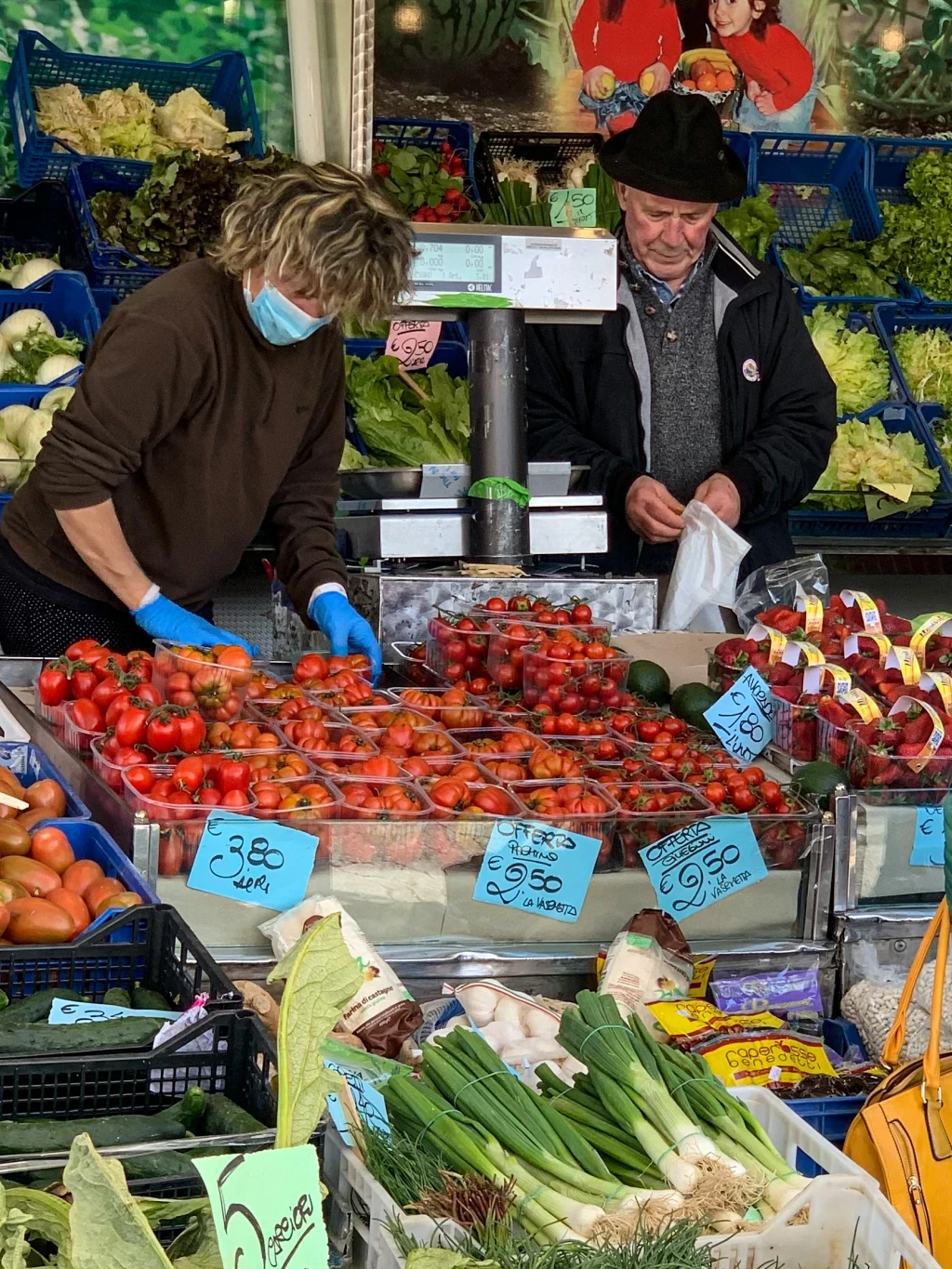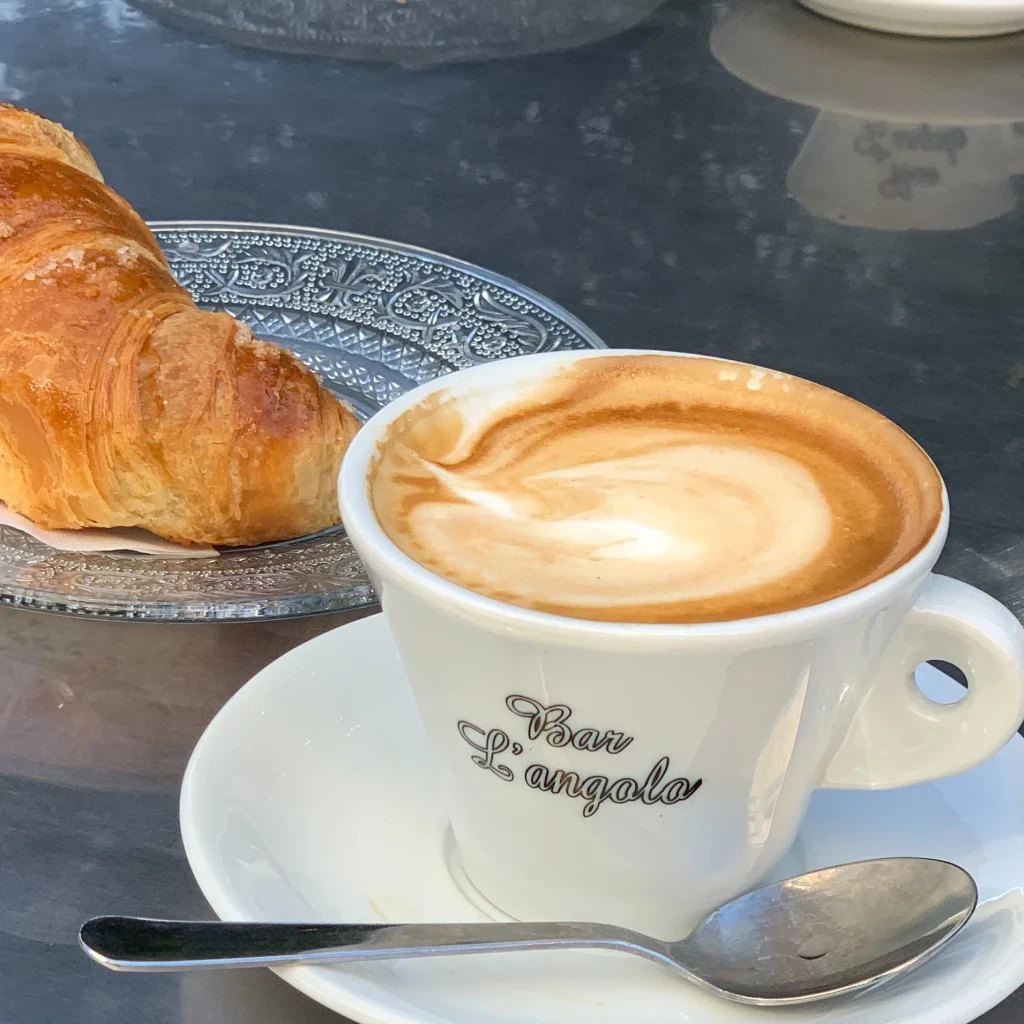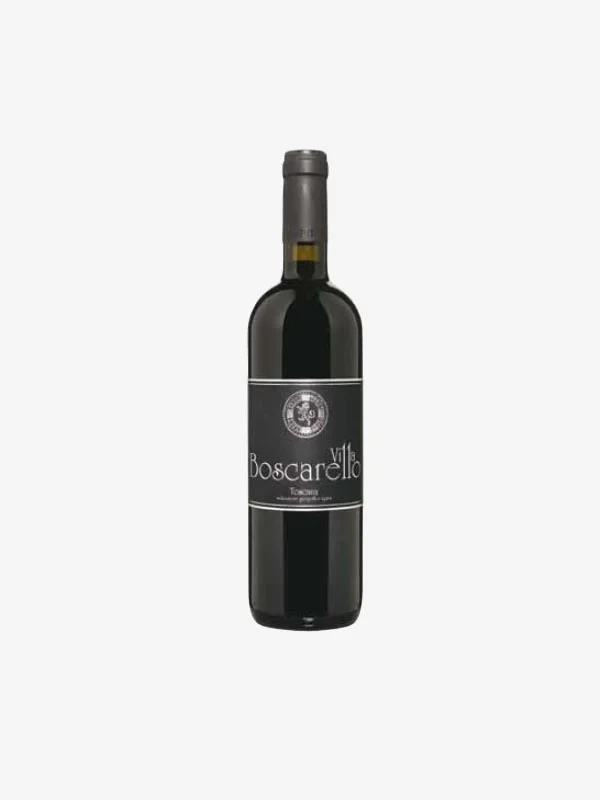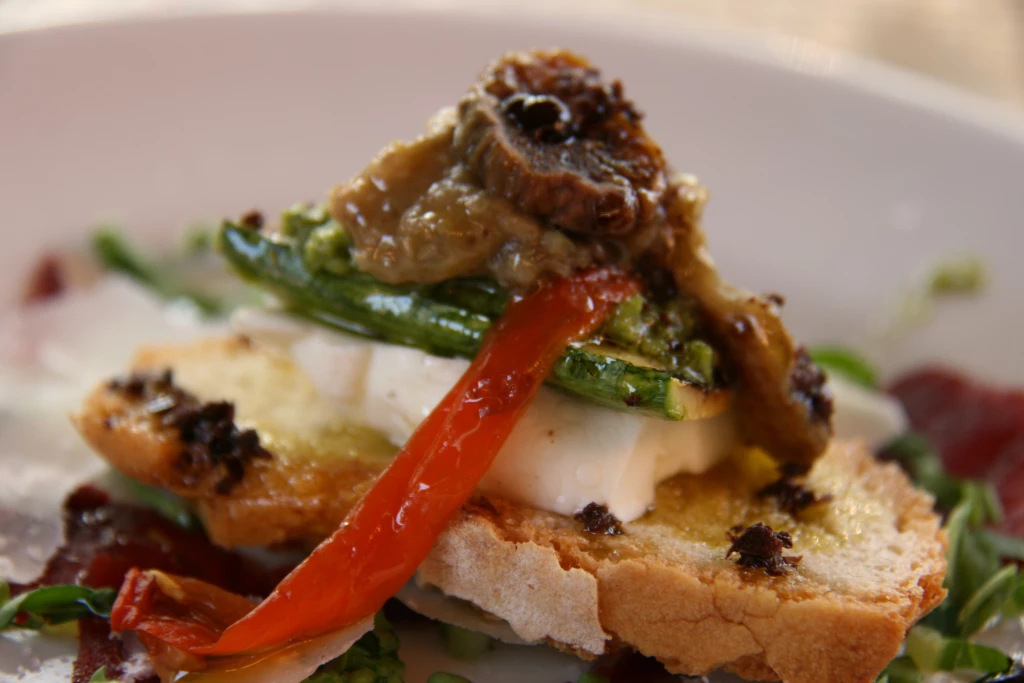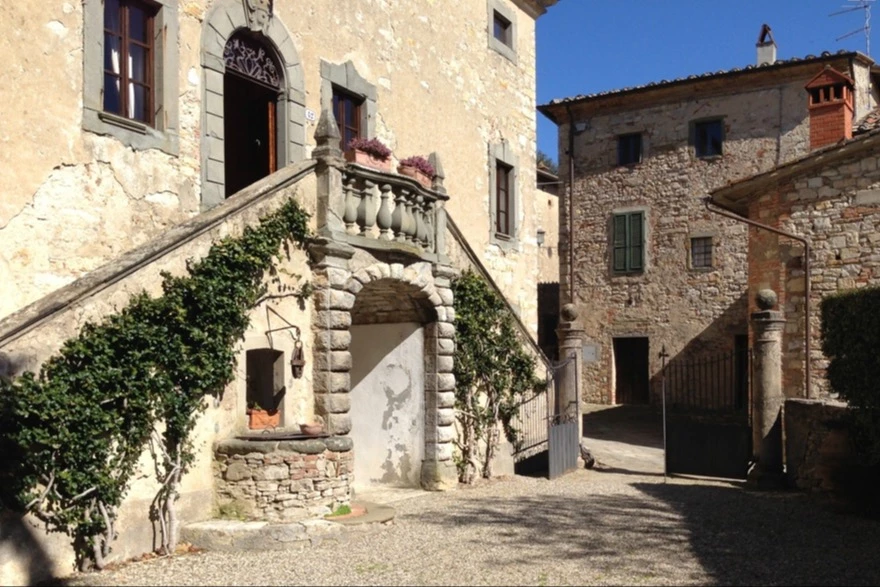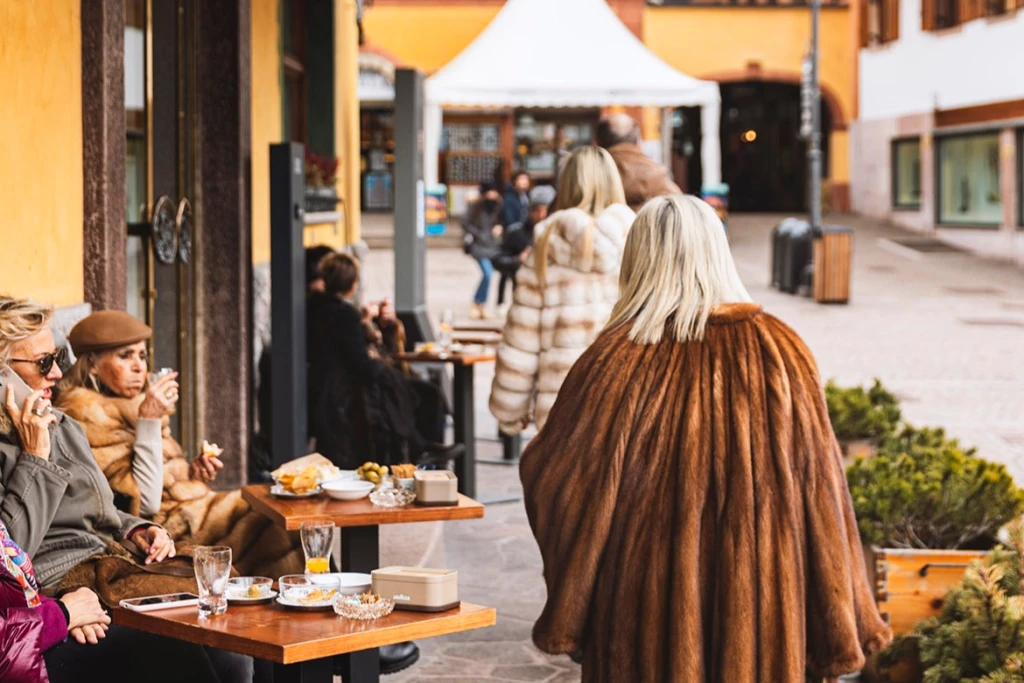A bit of an Italian celebrity
Carlotta is the owner and managing director of the Estate of This stunning Historic Villa in Tuscany, which I thought was very impressive at such a young age. Since that time I discovered she is also a very talented chef and actually a bit of a TV celebrity as well.
She took part in the TV show “La Dolce vita di David Rocco” which was broadcast in more than 100 countries around the world and dedicated an entire episode to the Estate of and its culinary tradition. In the summer of 2015, Carlotta was chosen to take part in the Italian version of the reality show “Hell’s Kitchen” hosted by chef Carlo Cracco.
In the autumn of 2015, she spent nearly two months learning the art of pastry in the 2-star-Michelin restaurant “il Pagliaccio” in Rome (Rome Guide), under the guidance of pastry chef Marion Litche.
After all the professional training as well as drawing on a decade of experience with her grandmother Marisa (who passed on her legacy of popular Tuscan cuisine) Chef Carlotta has stayed loyal to the culinary traditions she inherited but has enriched her menus with delicacies obtained using more modern techniques. Favorites such as handmade “pici” and tortelli dumplings, exquisite desserts (dry or soft), bread, and pizza cooked in a wood-burning oven are always on the menu, along with the tastiest dishes you could even dream of.
The good news is, she now shares her knowledge and talent through her fantastic cooking classes which gives you the opportunity to learn a complete menu from starter to dessert.
For those lucky people staying at the Villa, there are so many different options. You can request Chef Carlotta to cook a private dinner. The menus, which are chosen specifically for you, are prepared using organic local products and can be paired with the Estate's wines.
Additionally, there is an outdoor grill for a BBQ and our personal favorite... Pizza night! There is an original wood-burning pizza oven, where you can learn to make pizzas like a true Italian.
Markets Day
Then there is the large and well-equipped kitchen where you can practice the skills you learned in the cooking class. A visit to the local market is therefore a must. Markets in Italy are the beating heart of food and community, where locals shop for what’s fresh and to eye up the competition, better known as seeing what ingredients their neighbors are using in their dishes. It’s where friends gather over an espresso and pastry in the middle of the day.
Market day in Sinalunga (Piazza Giuseppe Garobaldi) is every Tuesday for fresh fruit, vegetables, meat, and my personal favorite; lots of fabulous cheeses! In summer it’s best to go early before it gets too hot. Join the locals and have an espresso and cornetto at Bar l'Angelo Bossi at Piazza at piazza Giuseppe Garobaldi.
The rest of the products you should buy at the Estate because they produce award-winning organic wine, Prosecco, grappa, craft beer, and olive oil.
Vineyard project
The “vineyard project” began in 1998 when Duccio decided to replant the vines: Today the Estate has 11 hectares of vines which are planted in a strategic position under the hot Tuscan sun about 350 metres above sea level. The vines were located in spots specially chosen for the composition of the soil, their exposure to the sun, and the special, dry, windy microclimate where there are no fog or morning mists. The wines are the result of hard work in the vineyards and the use of the latest technology in the winery: they are defined by their intense and varietal aromas, are full-bodied with an impenetrable colour and a complex, elegant, and lingering flavour.
Organic Wine
Since 2020 The farm has been entirely organic and all products are certified organic (ICEA)
All on-field treatments are based on copper and sulfur, employing natural fertilization methods.
The Vegan Wine
The Estate has also started production of vegan wine. They recently produced the "Supertuscan Vegan” which is a product of their hard work, dedication, and commitment to producing a wine with no animal or chemical derivatives, certified worldwide by the Vegan Society.
During wine production, substances can be added to the grapes to assist in the winemaking process. They are later removed because, after they have fulfilled their function, they settle on the bottom of the container. Theoretically, they should not be present in the finished product but there is always the risk of finding remaining traces. The main substances used are “clarifiers”, which are generally of animal origin, in particular egg white, casein, and caseinates, bone glue, isinglass, and gelatine, so-called as they give clarity to the wine and remove impurities.
We guarantee there are no derivatives of animal or chemical origin in our Supertuscan Vegano wine.
The ‘Cantina’ Project
The modern winery is divided into two areas: the first where the winemaking process takes place and the second where the wine ages in wooden barrels and is then bottled, stored, and left to refine. Every stage in the process takes place at a controlled temperature and the electricity needed is generated by solar panels on the roof. The grapes, which are selected on the vines and picked by hand, are brought to the winery in trays where they undergo further selection on a vibrating table; the stalks are then removed, taking care not to damage the grapes. Fermentation takes place in 8,000-litre truncated cone-shaped vats where the wine is “fulled” using a hydraulic piston: in this stage tradition really does meet with the latest technology. The wine is aged in French puncheons and barriques and then left to refine for a long time in the bottles before it is sold.
This is what I love about the Plinius Properties, They are not only beautiful holiday villas but they each come with fascinating stories about the owners, the property itself, and independent local businesses.
Historic Villa in Tuscany (Plinius No. 006)
